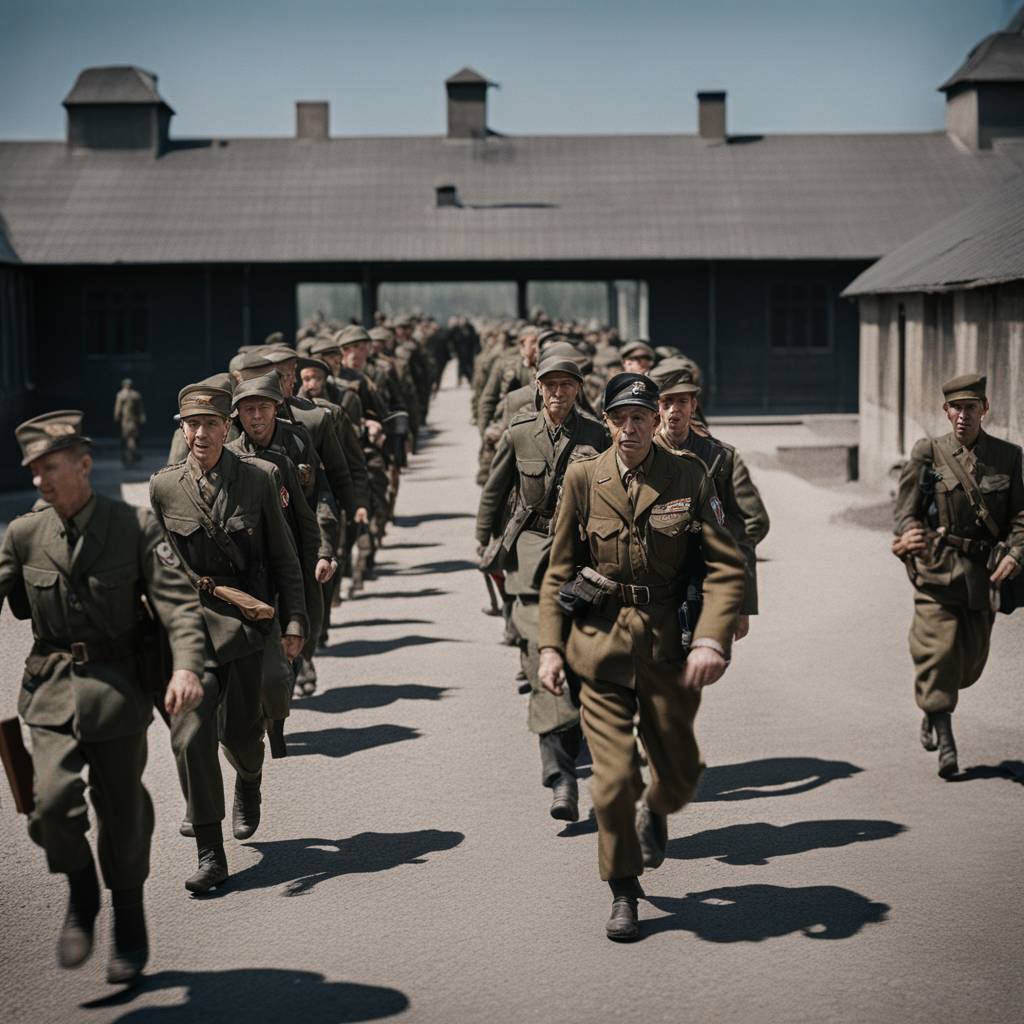On April 11, 1945, elements of George Patton’s Third Army confronted the human horror inflicted by Hitler’s National Socialist Workers Party when American GIs entered the Buchenwald concentration camp. This event brought awareness to the American soldiers of the atrocities committed by the Nazis. The concentration camp in Buchenwald, Germany, was one of the largest and most horrific of its kind, housing and slaughtering hundreds of thousands of people. The conditions at the camp were inhumane, with a reported 56,000 deaths and 21,000 prisoners still at the camp upon liberation. The arrival of U.S. troops helped free the remaining prisoners from their captors. The survivors recounted the unimaginable suffering they endured, leaving a lasting impact on those who witnessed it.
The Riegner Telegram in August 1942 revealed the planned extermination of millions of Jews by the Nazis, shocking the U.S. and its Allies. This document verified the reports of genocide being carried out by Hitler’s regime and prompted international condemnation. The news of the mass murders of Jews by the Nazis triggered rallies and vigils in Jewish communities worldwide. The United States, Great Britain, the Soviet Union, and other Allied nations declared their commitment to punish war criminals responsible for the atrocities. The declaration issued by the Allies in December 1942 condemned the cruelties and exterminations of Europe’s Jews, vowing justice after the war. The revelation of the systematic genocide committed by the Nazis raised global awareness and prompted action against the perpetrators.
The liberation of Buchenwald by U.S. troops marked a turning point in the fight against Nazi atrocities. The armored units of the U.S. Third Army advanced towards the camp on April 11, 1945, leading to the surrender of the SS troops running the prison. The resistance fighters within the camp mobilized and overpowered the remaining guards, freeing themselves from captivity. The scenes witnessed by the American soldiers, including piles of emaciated bodies and evidence of starvation and cruelty, deeply affected them. Supreme Allied Commander Gen. Dwight D. Eisenhower, after visiting another concentration camp at Ohrdruf, spoke of the sickening sights he witnessed, emphasizing the need for firsthand evidence to combat potential denials of the atrocities committed by the Nazis.
The aftermath of the liberation of Buchenwald and other concentration camps left a lasting impact on the survivors and the world at large. The revelations of the horrors faced by the prisoners, including starvation, cruelty, and inhumane treatment, served as a stark reminder of the depths of human depravity. The testimonies and visual evidence captured at the camps conveyed the brutality inflicted on innocent lives, challenging future generations to remember and learn from the atrocities of the Holocaust. The liberation of Buchenwald symbolized the triumph of freedom over tyranny and the resilience of the human spirit in the face of unimaginable suffering. The courage and determination of the survivors to overcome their traumas and rebuild their lives serve as a testament to the enduring power of hope and humanity.
The discovery of the atrocities committed by the Nazis at concentration camps like Buchenwald underscored the importance of remembering and honoring the victims of the Holocaust. The stories of survival and resilience of the prisoners, along with the efforts of Allied forces to confront and defeat the perpetrators of genocide, serve as a reminder of the ongoing fight against hatred and intolerance. The liberation of Buchenwald and the subsequent revelations of the Holocaust’s horrors prompted a global outcry for justice and accountability. The commitment of the Allies to punish those responsible for the atrocities demonstrated a united front against tyranny and inhumanity, laying the groundwork for a more just and peaceful world. The legacy of Buchenwald lives on in the lessons learned from the past and the continued efforts to combat bigotry and discrimination in all its forms.












